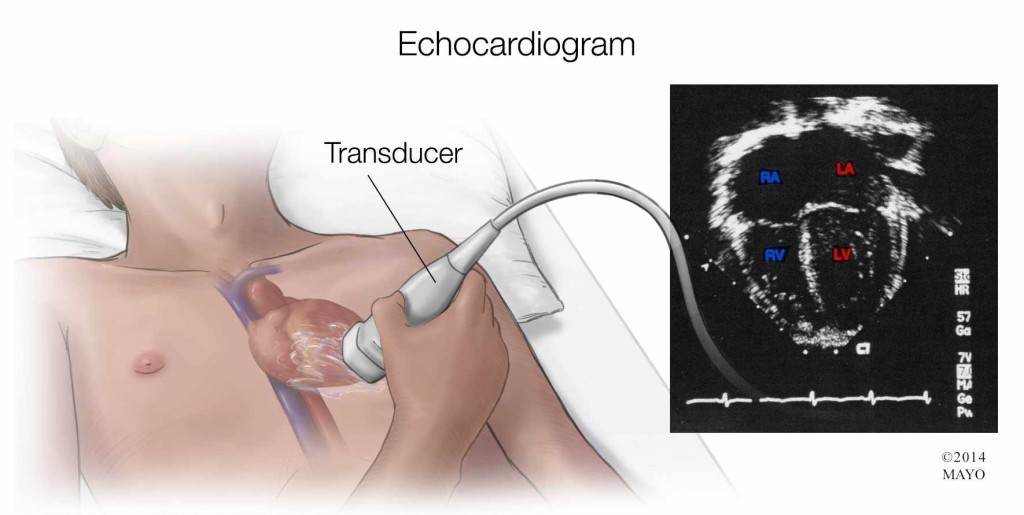-
Cardiovascular
Weekend Wellness: Numerous tests available to check heart function
DEAR MAYO CLINIC: My husband is 82 years old. Over the past year he’s become very tired, and he sometimes gets short of breath. His doctor recommends he has tests to check his heart function. What are these tests, and what would they be looking for?
ANSWER: Doctors can use a number of tests to check heart function. In your husband’s situation, his doctor may recommend an echocardiogram to assess his heart health and to see how well his heart is beating and pumping blood. An exercise stress test also may be useful. Depending on the results, other tests may be necessary, too.
The heart is basically a pump that sends blood to the rest of the body. When a heart cannot pump the way it should, some parts of the body may not get all the blood they need. That can lead to a variety of symptoms. Fatigue and shortness of breath are two of the most common. Others include swelling (edema) in the legs, ankles and feet, a rapid or irregular heartbeat, persistent cough, sudden weight gain, and elevated blood pressure, among others.
Of course, fatigue and shortness of breath can be caused by many conditions other than heart problems. To evaluate his overall health, your husband’s physician likely will start with a careful review of his medical history and a physical exam. Blood tests, a chest X-ray and electrocardiogram, or ECG, also may be recommended. An ECG records the electrical signals that trigger heartbeats.
One of the most straightforward ways to rule out a heart condition is with a test called an echocardiogram. An echocardiogram uses sound waves to produce images of the heart. During this test, a technician presses a device known as a transducer firmly against a person’s skin, aiming an ultrasound beam through the chest to the heart. The transducer records the heart’s sound wave echoes. A computer converts the echoes into moving images on a monitor.
From the images, doctors can assess the heart’s valves, chambers and muscle. The size of the heart, its pumping strength, and the regularity of the heartbeat can provide information about a heart’s health.
If echocardiogram results show that your husband’s heart may not be pumping blood as well as it should, he could have a condition known as congestive heart failure, and an exercise stress test may be recommended.
An exercise stress test gathers information about how well the heart works during exercise. Because exercise makes the heart pump harder and faster than it does during most daily activities, the test may reveal heart problems that might not be noticeable otherwise.
During the test, your husband would walk on a treadmill or ride a stationary bike while an ECG records the electrical signals that trigger his heartbeats. Before starting, sticky patches, called electrodes, are placed on the chest, legs and arms. They are connected by wires to an ECG machine. Blood pressure is monitored during the test, as well.
The test starts slowly. As it progresses, the speed and incline of the treadmill or resistance of the bike increases. The test continues until the heart rate reaches a set target or until symptoms develop that don’t allow the participant to continue. The goal is to have the heart work hard for about eight to 12 minutes to thoroughly monitor its function. Your husband’s doctor may be able to use the information gathered from an exercise stress test to diagnose a heart problem or to determine if more tests are needed.
Have a conversation with your husband’s doctor about the specific heart function tests that are appropriate for his situation. Talk about other tests or evaluations that may be necessary if no heart problem is found. If you have other questions, make sure to discuss them, too, so you know what to expect as you move forward. — Charanjit Rihal, M.D., Cardiovascular Diseases, Mayo Clinic, Rochester, Minn.







